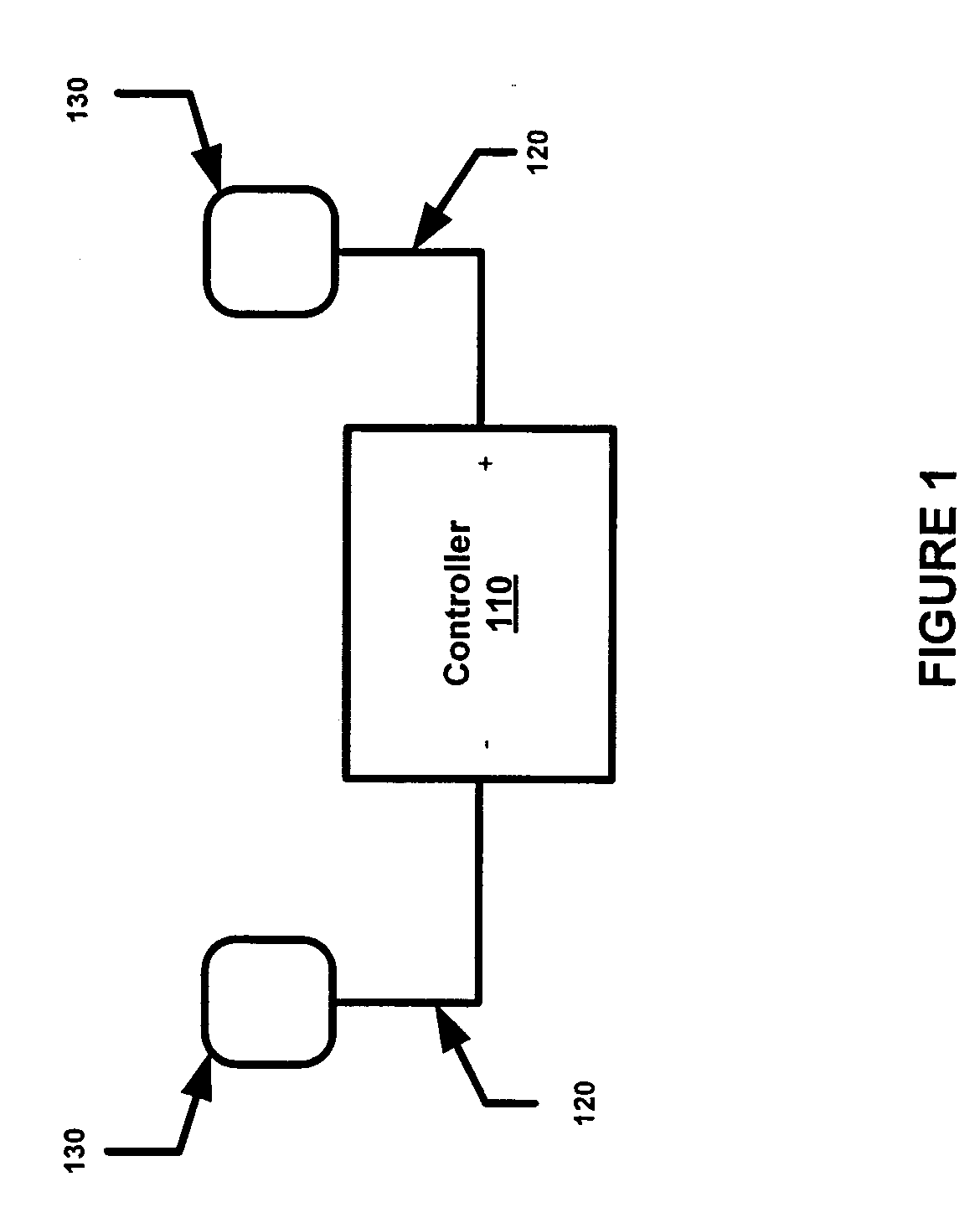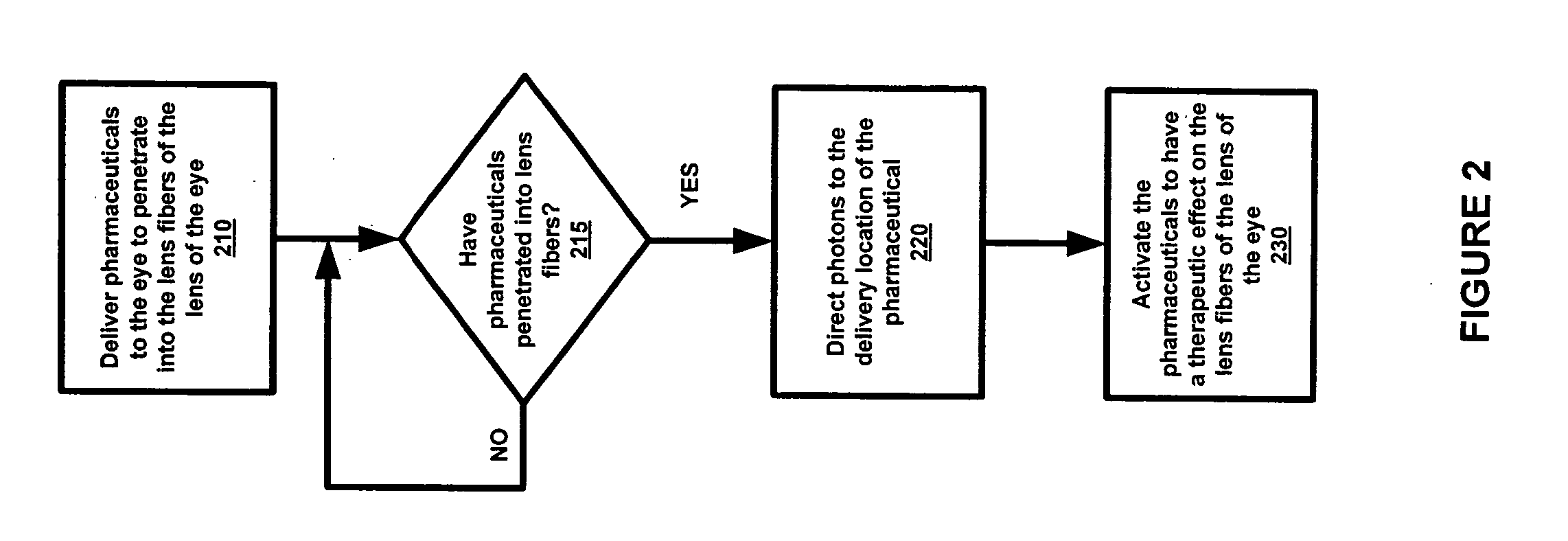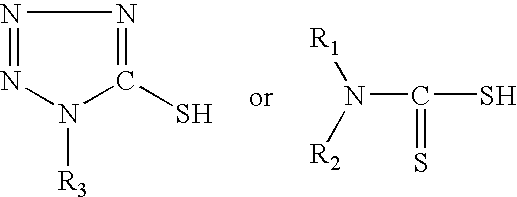Method for delivery of pharmaceuticals for treating or preventing presbyopia
a technology for presbyopia and pharmaceuticals, applied in the direction of capsule delivery, microcapsules, therapy, etc., can solve the problems of not meeting widespread acceptance so far, unable to reverse presbyopia, and the efficacy of such techniques is not well established, so as to reduce the tendency for the lens to lose its restored accommodative amplitude, prevent the onset of presbyopia, and restore the accommodative amplitud
- Summary
- Abstract
- Description
- Claims
- Application Information
AI Technical Summary
Benefits of technology
Problems solved by technology
Method used
Image
Examples
Embodiment Construction
[0022] The accommodative amplitude of the lens is measured in diopters (D). The loss of accommodative ability begins at a very early age, such that by age 10 the average eye has 10 D, age 30, 5 D, and by age 40, only 2.5 D of accommodative power. The lens of a person who does not suffer from presbyopia (i.e. a person whose lens accommodates normally), will typically have an accommodative amplitude of about 2.5 diopters or greater. The terms “treating presbyopia” as used herein mean increasing the accommodative amplitude of the lens.
[0023] As stated, inelasticity of the lens, or hardening thereof, is believed to be a contributing cause of presbyopia. The hardening of the lens can be due to an alteration of the structural proteins or an increased adhesion between the lens fibers. Additionally, it is believed that the lens viscosity also increases with age due to an increased concentration of certain chemical bond structures within the lens. In one embodiment, presbyopia may be treate...
PUM
 Login to View More
Login to View More Abstract
Description
Claims
Application Information
 Login to View More
Login to View More - R&D
- Intellectual Property
- Life Sciences
- Materials
- Tech Scout
- Unparalleled Data Quality
- Higher Quality Content
- 60% Fewer Hallucinations
Browse by: Latest US Patents, China's latest patents, Technical Efficacy Thesaurus, Application Domain, Technology Topic, Popular Technical Reports.
© 2025 PatSnap. All rights reserved.Legal|Privacy policy|Modern Slavery Act Transparency Statement|Sitemap|About US| Contact US: help@patsnap.com



